- This topic has 0 replies, 1 voice, and was last updated 3 years ago by .
-
Topic
-

Yury Tomashevich https://yuri-tomashevi.pixels.com/
https://vtorvich.com/When did you first become interested in art?
I became interested in art as a viewer, not an artist in my youth. We lived in a small city with no art galleries. I studied art through books about painters.
What about photography in general?
I have shot photos since school, but that was not fine photography.
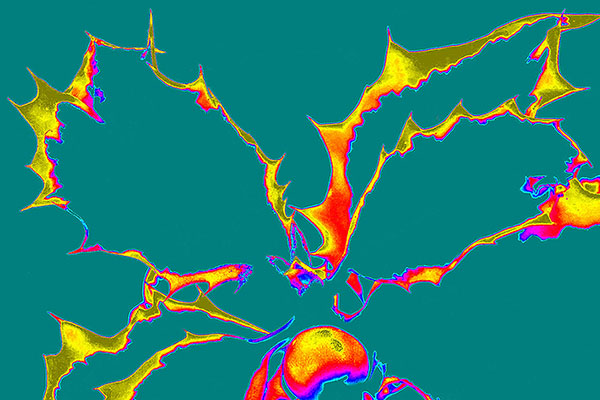
Golden Butterfly Abstract @Yury Tomashevich Which camera do you use most?
Sony A6000.
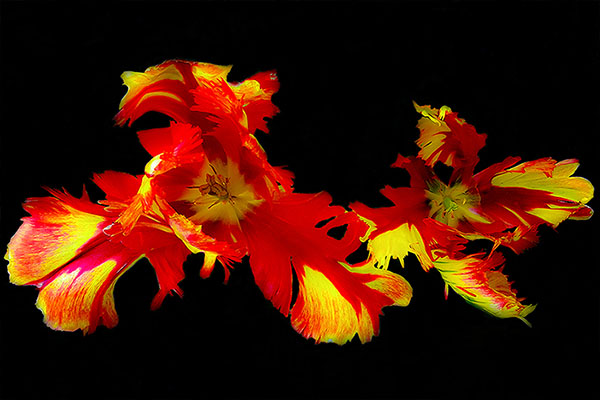
Tulip Feast @Yury Tomashevich What made you choose that camera?
It is a good camera with relatively small size and weight.
SIDENOTE – I did a Kirlian photography and saw life after death with my own eyes.
Here is the story.
My most exciting photo images were made in 1969. No photo camera was used.
Semyon Kirlian in USSR discovered that if an object on a photographic plate is connected to a high-voltage source, an image is produced on the photographic plate. That discovery happened in 1939. That kind of photography was later named Kirlian photography. However, for a long time, the broad public did not know it. Only in the 70s years of the 20th century did the first international conferences on Kirlian photography start to appear.
In 1969 our team of several friends at an Optical Institute in Sosnovy Bor in Russia built high-voltage equipment. That equipment provided a short electrical impulse with an initial voltage level of up to 35 thousand volts.
In the fall of 1969, we were hit by an article about Kirlian photography in the popular magazine “Technika molodezhi” (Technology for Youth). The most interesting for us was a statement that with Kirlian photography, it is possible to see (on a Kirlian photo) an image of a non-existent (cut-off) part of a living leaf. We were immediately intrigued.
It was late September. Snow was everywhere. Still, we were lucky to find out several last living, not withered leaves on an oak tree nearby. We took a leaf from the tree and put it onto a sheet of photo-printing paper. That was done in a dark room. We put that sandwich of printing paper and a leaf into a black paper envelope and sealed it.
That envelope was posted on a table in our high-voltage equipment. Then we applied a high voltage impulse to it. After that, we removed the oak leaf and processed the photo paper for printing in the darkroom using the standard photo paper processing technique. This procedure gave us a Kirlian photo of a whole living leaf.
Then we cut off a part of the oak leaf with scissors, about 15 percent of the entire leaf area. The cut-off portion of the sheet was thrown into a trash can in the next room. At that time, the remaining piece of the leaf was still green and alive. We then took Kirlian photographs of this leaf several times over the next six hours. We were careful to keep our experiment clean. A new black paper envelope and a new sheet of printing paper were used for every separate photo.
We were amazed at the results. I had one such Kirlian black-white photo with a partly cut leaf at my home. Unfortunately, it was lost somewhere in 1997 while we were preparing for immigration to the USA. Therefore, I could not post here an output of our experiment with Kirlian photography.
A top part of the leaf on this Kirlian photo was cut off and thrown away.
In our experiment, we still saw a cut-off part of the living leaf for about 3 hours since we took that leaf from the tree.
We observed the part of space where this part of the leaf was before we cut it off and threw it away. In the Kirlian photograph, we see a bright glow in uncut, living part of the leaf. This glow is a representation of life in this leaf. We also see a less vivid continuation of this leaf’s life in that empty space where the now cut-off part of the leaf used to be. Over time, the leaf’s life in the place where the leaf no longer exists weakens and then disappears altogether.
I saw it. Two of my friends on our team saw it. We did show our Kirlian images at the time to many other people. They saw them.
That small black-white photo, on which a cut-off part of a living oak leaf was clearly seen, was the most exciting photo I have ever taken. And the biggest regret in my life as a photographer is that I lost this photo.
Do you use a photo editor?
I use Photoshop with a small amount of editing.
Do you enjoy the photography or the editing more?
Creating abstract artwork from a photo is very different from making an abstract painting by a painter. The painter has much more freedom than a photographer. The painter starts from the blank canvas. Photographer has to have a vision of what could be done from whatever he could shoot to make it into an abstract artwork. And then he should actually do that transformation. Both stages are intertwined and enjoyable.
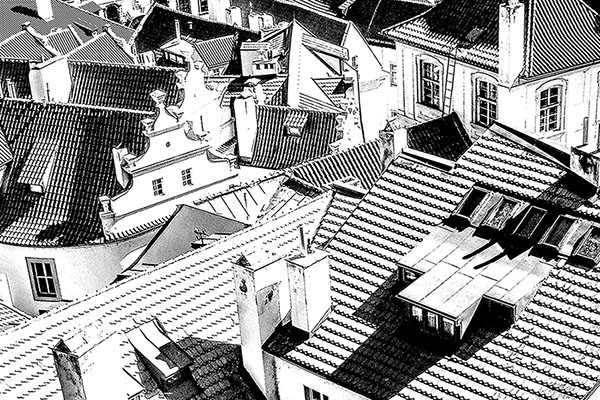
City Abstract BW @Yury Tomashevich Which other photographer, dead or alive, would you love to meet?
I prefer to meet a painter, not a photographer – Pieter Bruegel the Elder.
What is your favourite piece of work by yourself?
My favorite piece of work is “Blessing of Thousand Suns.”
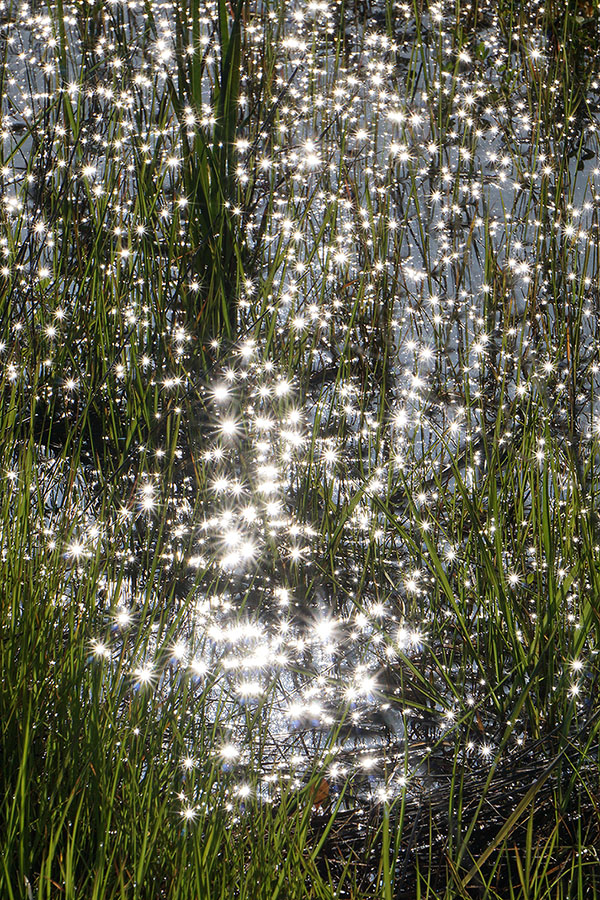
Blessing of Thousand Suns @Yury Tomashevich How well do you take criticism?
I take criticism well. I could be angry inside if comments are nasty, but I try to calm down and see if there is anything positive for me in this critique. Feedback is an important and needed component to becoming a better artist.
I wrote a book, “Subsurface History of Humanity: Direction of History“. It is published under my pen name Victor Torvich.
In this book, I showed the direction of the history of humankind during the last 44 thousand years. That direction is not related to subjective terms like progress, morality, happiness, or alike.
How fast is humankind moving in the found direction? Is that move controllable by humans? Why do humans rule the Earth? Which force is driving humanity’s development? Those questions also are answered in my book. I looked at history from the viewpoint of a precise science. The book concludes with a discussion of which circumstances could shortly lead us off the uncovered course.
Do you travel far when photographing?
I do not travel for photography though I do photos while traveling.
Leonard Cohen – Dance me to the end of loveWhat was the best advice given to you as an photographer? What advice would you give new photographers?
I did not get any generic advice from anybody as an artist or photographer. I find the inspiration in Winston Churchill’s words: “Never give in, never give in, never, never, never, never-in nothing, great or small, large or petty — never give in except to convictions of honour and good sense.” That advice is for everybody.
Do you think the internet has altered the way photographers can get known?
Of course, the Internet and, specifically, social networks altered how artists/photographers can get known. I started as an artist in 2016 when social networks were already pretty mature. Thus, I could not compare and conclude was it easier before or not.
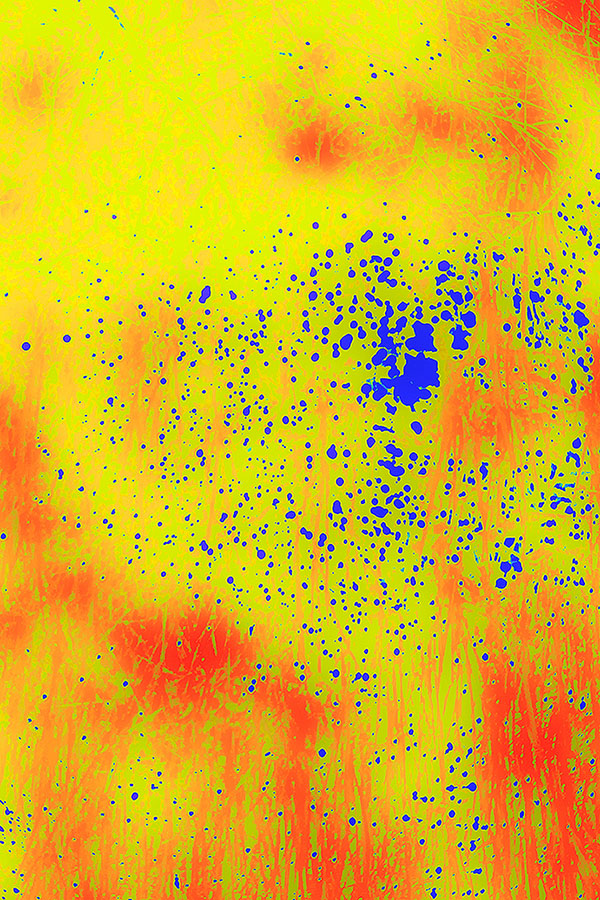
Rain in a Desert Abstract @Yury Tomashevich Have you done any courses to help you?
In my twenties, I attended one small course in watercolor painting. It was very good for me, and I still remember the details.
The most exciting art exhibition I ever saw was the Modigliani exhibition in LA in 2003. it was the first major Modigliani exhibition in the United States in more than 40 years. He often painted people’s eyes with a flat color. Yet, if you look at his paintings face-to-face, you see that those eyes are very expressive. This magic is totally lost in reproductions of his paintings in books.
What do you do to market your work?
I market my artwork mostly in Facebook groups.

Leaves @Yury Tomashevich Are you available for work (commissions)?
I didn’t do it, but it would be interesting to try.
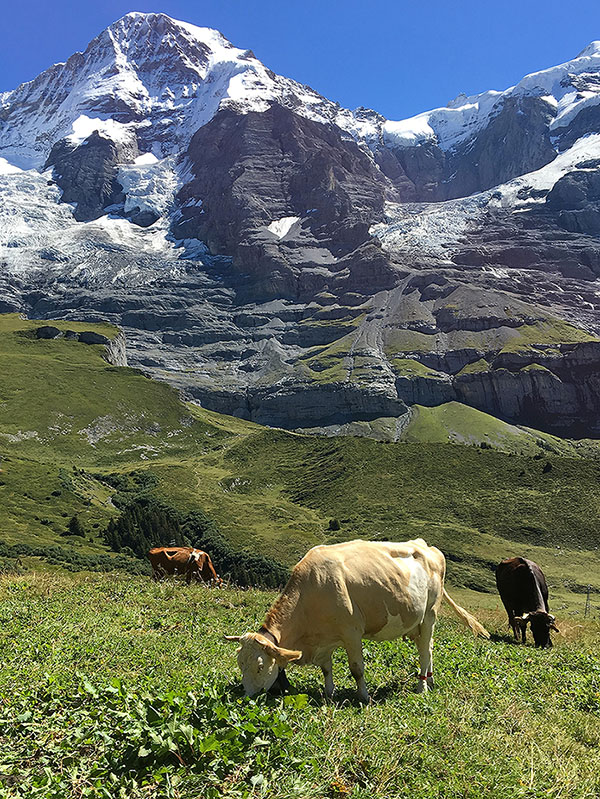
Peaceful @Yury Tomashevich Have you got hobbies?
My creative work is my hobby.
Do you have a significant other? Are they supportive?
My wife, daughter, and grandkids are all supportive. Per my daughter’s request, I bought one of my artworks for her.
Very creative look at “The Hunters in the Snow – Painting by Pieter Bruegel the Elder” See it from 2:09:24 to 2:11:19What do you dream about when asleep?
I do not remember my asleep dreams.
Where are you based?
I live in Silicon Valley, California, in the small town of San Carlos, between San Francisco and San Jose.

Mystery of Woman @Yury Tomashevich Post Permalink – https://ourartsmagazine.com/blog/getting-to-know-yury-tomashevich/
⋱⋰⋱⋰⋱⋰⋱⋰⋱⋰⋱⋰⋱⋰⋱⋰
Site Owner • Community Manager
Artist • Authoress • Autistic •
Lover of Wolves, Woods, and Wild Places
⋱⋰⋱⋰⋱⋰⋱⋰⋱⋰⋱⋰⋱⋰⋱⋰
